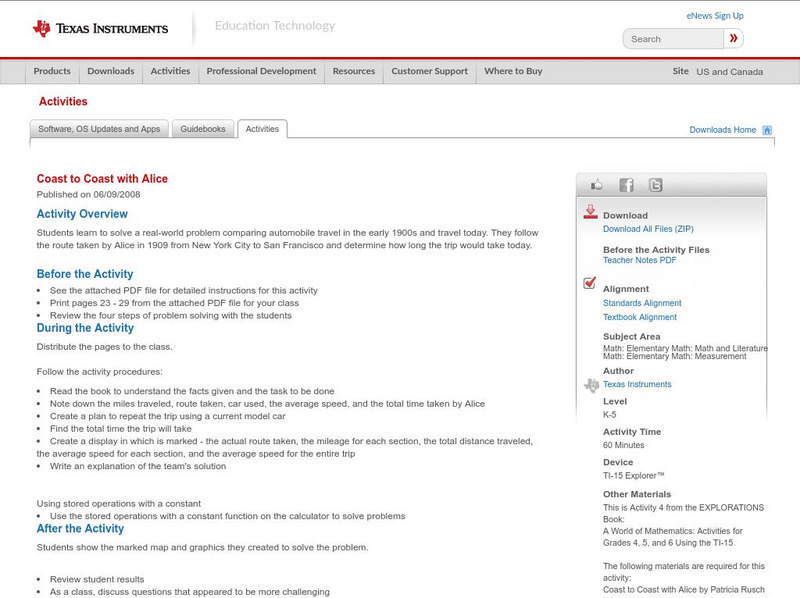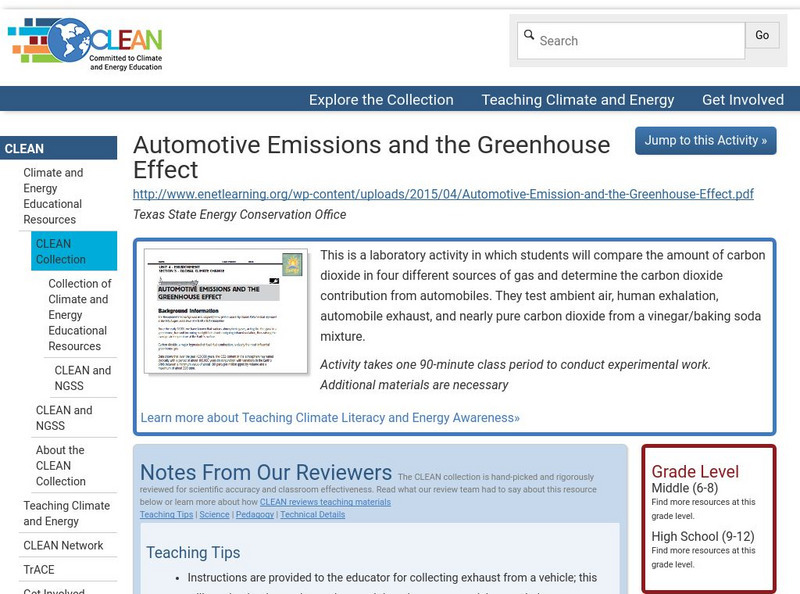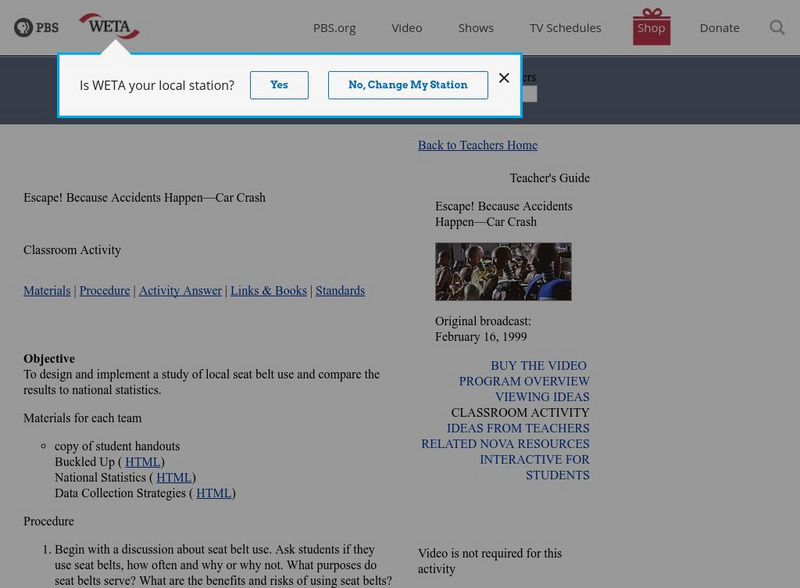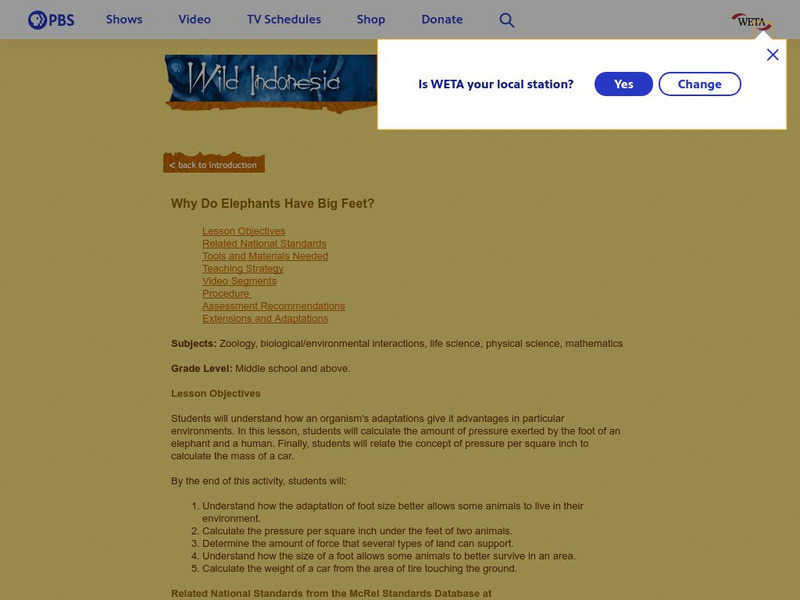ClassFlow
Class Flow: The History of Automobiles: Comprehension Strategies
[Free Registration/Login Required] This lesson targets the history of the automobile in three major phases of its development.
Texas Instruments
Texas Instruments: Coast to Coast With Alice
In this activity, learners learn to solve a real-world problem comparing automobile travel in the early 1900's and travel today. They follow the route taken by Alice in 1909 from New York City to San Francisco and determine how long the...
National Science Teachers Association
National Science Teachers Association: Egg Drop and Impulse
This page offers a detailed description of and a link to a set of lessons that will assist teachers in targeting NGSS standard HS-PS2-3. Students investigate momentum and impulse and are challenged to solve an engineering problem that is...
Climate Literacy
Clean: Automotive Emissions and the Greenhouse Effect
This is a laboratory activity in which students will compare the amount of carbon dioxide in four different sources of gas and determine the carbon dioxide contribution from automobiles. They test ambient air, human exhalation,...
PBS
Pbs Teachers: Escape! Because Accidents Happen: Car Crash
Examine the benefits and risks of using seat belts and analyze national statistics on seat belt use. Design and implement a study of local seat belt use and compare the results to the national statistics.
PBS
Pbs Teachers: Why Do Elephants Have Big Feet?
Explain how an organism's adaptations give it advantages in particular environments. Calculate and compare the amount of pressure exerted by the foot of an elephant and a human, and apply that knowledge to an understanding of automobile...
Smithsonian Institution
National Museum of Natural History: American Mammals: Western Gray Squirrel
Although Western Gray Squirrels are diurnal, they are secretive by nature and stay away from humans as much as possible. However, they are comparatively frequently hit by automobiles, perhaps because they lack experience of human...






